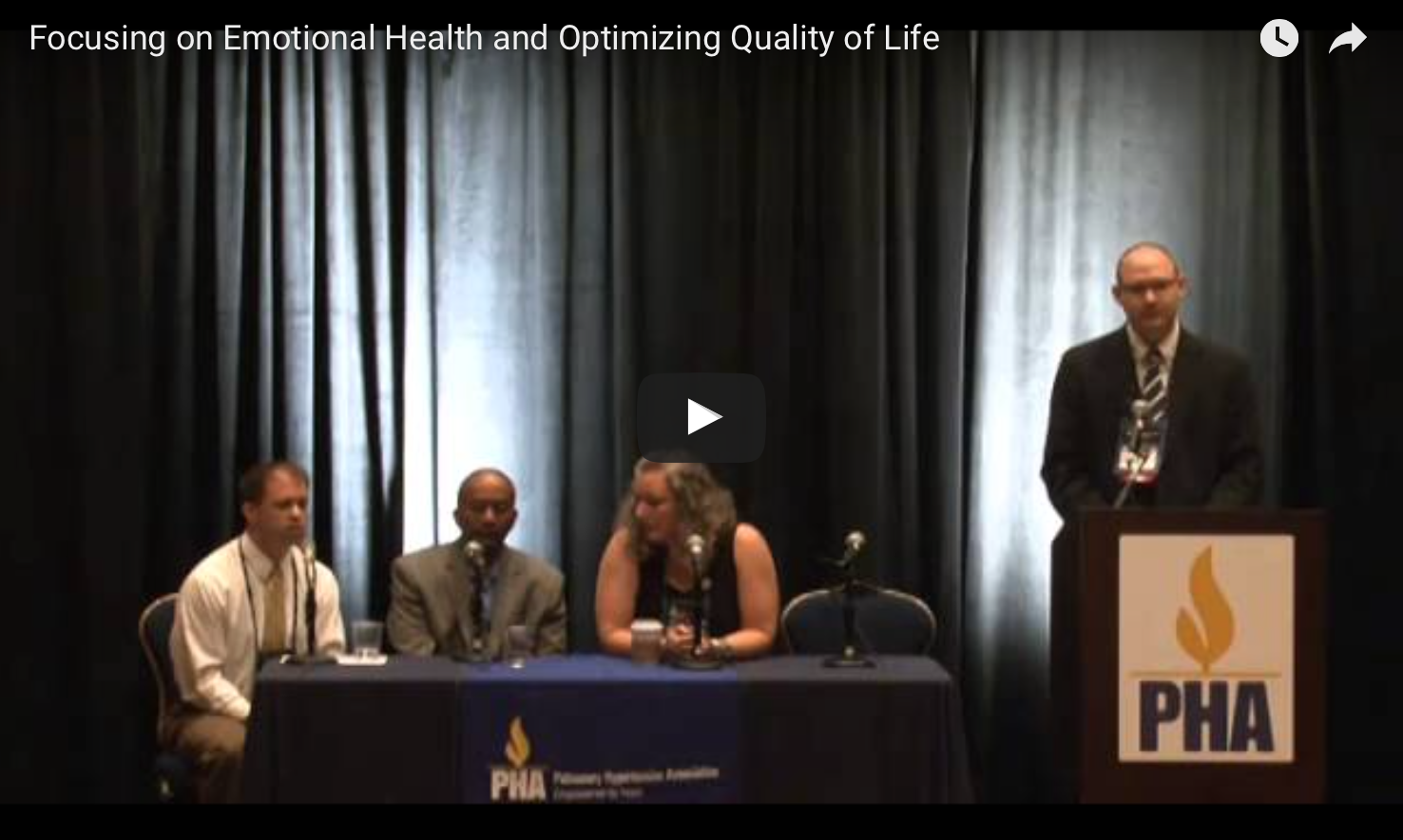PH: Focusing on Emotional Health and Optimizing Quality of Life

https://www.youtube.com/watch?v=5KX_0biPgmQ
Pulmonary hypertension (PH) is a disease characterized by high blood pressure in the arteries of the lungs and right side of the heart. Patients often experience symptoms such as shortness of breath (dyspnea), fatigue, dizziness or fainting spells (syncope), chest pressure or pain, swelling (edema) in the ankles, legs and eventually in the abdomen (ascites), bluish color to the lips and skin (cyanosis), and racing pulse or heart palpitations.
However, the physical burden of the disease is not only the struggle PH patients need to face, the emotional burden of the disease is equally important. Taking care of their emotional health can help patients improve their quality of life. In this video shared by the Pulmonary Hypertension Association (PHA), experts discuss methods to optimize emotional health and quality of life while dealing with invasive treatments and a difficult disease.
Please note the video “Focusing on Emotional Health and Optimizing Quality of Life” was shared in 2013, and the conference where it was filmed took place in 2012. There may be some issues discussed that might now be outdated but the content shares general information that’s important to know and understand in order to deal with PH better.
The panelists in the conference include Keith Swetz, MD, from the Mayo Clinic, Rochester, Minn. (Chair), Dan Grinnan, MD, from the VCU Health System, Richmond, Va., Robert Scott, MD, from the Mayo Clinic Arizona, Phoenix, Ariz., and Traci Stewart, RN, MSN, from the University of Iowa, Iowa City, Iowa.
Read the latest updates on pulmonary hypertension: https://bit.ly/1K4oewk
Pulmonary Hypertension News is strictly a news and information website about the disease. It does not provide medical advice, diagnosis or treatment. This content is not intended to be a substitute for professional medical advice, diagnosis, or treatment. Always seek the advice of your physician or other qualified health provider with any questions you may have regarding a medical condition. Never disregard professional medical advice or delay in seeking it because of something you have read on this website.







